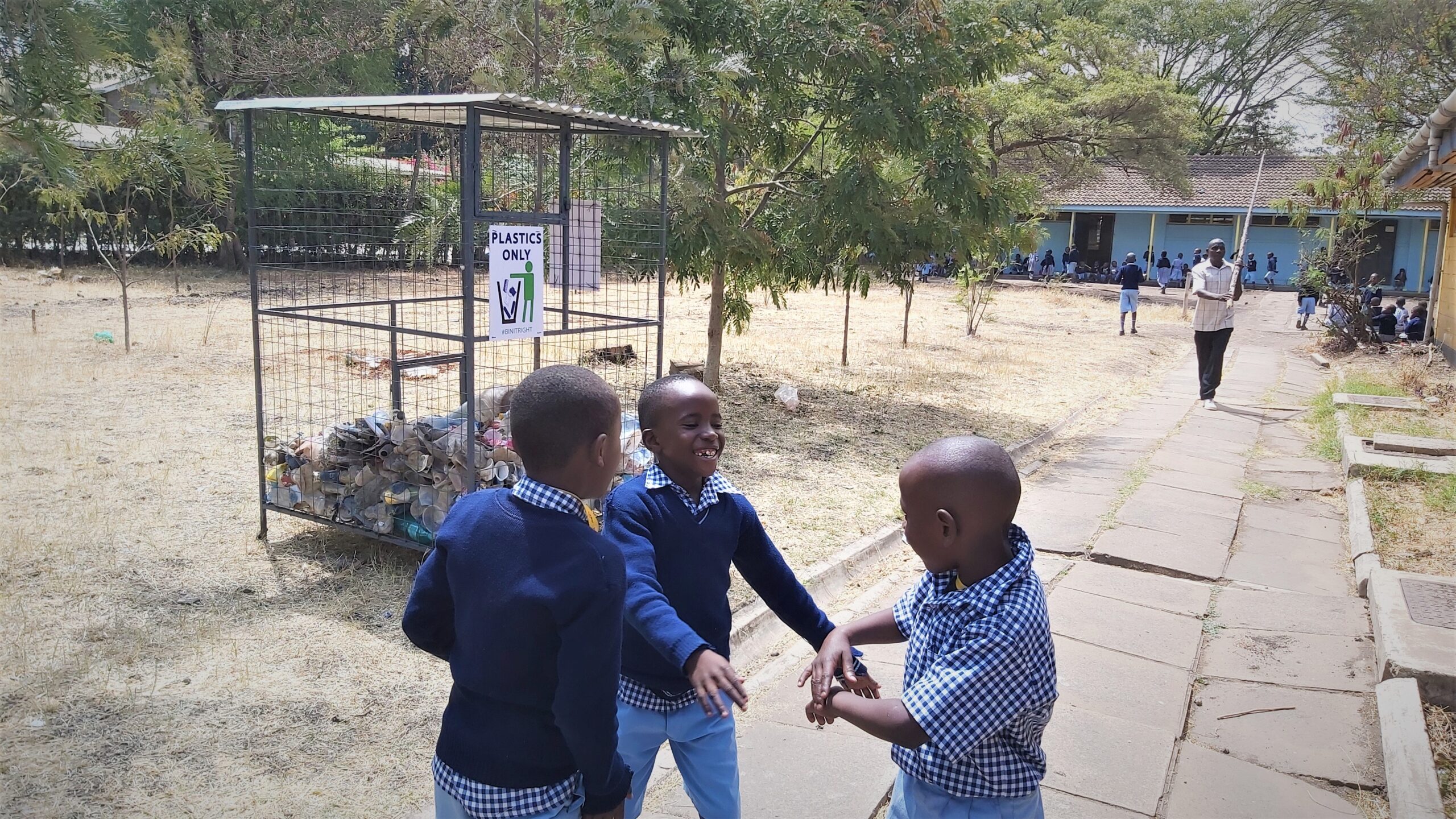Sustainable Inclusive Business-Kenya (SIB-K), the knowledge center under the Kenya Private Sector Alliance (KEPSA) has launched a school plastic waste sorting campaign dubbed #BINITRIGHT. Umoja Primary School in Nairobi, is the host to the initial phase of the initiative, which seeks to improve the separation and recycling of plastic waste.
Clogged drainage systems, an unhygienic environment and breeding grounds for mosquitoes are problems most high-traffic residential areas in Nairobi face. This is partly due to the careless dumping of single-use plastic bottles and containers. What if we could get this plastic waste off our environment and back in use to benefit us long-term? This would need a cultural change from the residents and what better way to start than with the school-going children.
“We want to create awareness across primary schools in different counties starting with Nairobi, to cultivate the environmental responsibility mindset among school-going children. School-going children are key agents of change in every society and should be empowered with the knowledge of driving positive change,” Says Pracksidis Wandera, Projects Assistant at SIB-Kenya.
To trickle the message of sustainable plastic waste management, SIB-Kenya put up a designated plastic waste collection point within the school. “This makes it easier for recyclers to collect the plastic waste and proceed to reuse it. All the 1,700 pupils in the school are encouraged to carry any plastic waste they find at home and take it to the designated, collection point at school, thus keeping their homes, their school and their communities free of plastic waste,” added Wandera.
Thereafter, the plastic waste is either recycled or re-purposed into creative projects for the schools. “The plastic waste can be recycled into fencing poles or outdoor plastic furniture to be used within the school. This way, the students will see the complete cycle of the plastic waste and will be encouraged to continue using the designated plastic collection point,” She concluded.
During the launch session, pupils from grades 4 to 6 were asked environmental questions for a better understanding of waste management, and environmental responsibility. Six pupils, two representing each grade, were selected to be the school’s environment champions. Cultivating this practice is going to help them appreciate their environment and shape them into environmentally responsible adults.
The project was well received by the pupils and staff alike. The Senior Teacher, Mrs. Anne Okaro, being the first to dispose a plastic bottle into the designated bin, noted that she is passionate about keeping the environment clean. “The initiative will help the pupils to be more responsible and to take care of the compound,” she said. “The initiative has just come at the right time,” added the senior teacher, pointing to a clogged drainage system right outside the school.
The Headteacher Mr. Samuel Onyango commented that the waste sorting project is viable and will help to control littering within the school; especially single-use plastic containers which are very common. “With all the pupils informed about waste separation, they will make sure that all plastic waste ends up in the right place. Plastics are not just waste but recyclables, making this economical.”
He concluded by adding, “it is very important for children to learn about the environment and how to keep it clean. This will bring in the practical aspect of what they are taught in class through environmental studies.”
The #BINITRIGHT initiative aligns closely with the vision of the Kenya Plastics Pact, to help create a circular economy for plastics in Kenya. One of the key outcomes of Target 1 of the Pact’s Roadmap is to engage citizens (including school-going children) to adopt behaviors that support the elimination of problematic items. To this end, it is expected that scaling the initiative will go a long way in transforming how we use and reuse plastics and move from a linear take-make-waste economy to a circular economy, which keeps plastics in use and out of the environment.
About Sustainable Inclusive Business
Sustainable Inclusive Business – Kenya (SIB-K) is a knowledge center under the Kenya Private Sector Alliance (KEPSA) funded by the Netherlands Government. The project aims to encourage businesses to be sustainable and inclusive, positively impacting People, Planet, and Profit. This is achieved through sharing information on best practices and viable, sustainable business models, implementing sustainable business policies, and creating partnerships.
SIB-K is also the lead organization implementing the Kenya Plastics Pact. This ambitious, collaborative initiative is bringing together stakeholders across the whole plastics value chain to transform the current linear plastics system into a circular economy for plastics. All stakeholders sign up for a joint set of ambitious and time-bound targets, ensuring that this collaboration will drive significant change by 2030.


